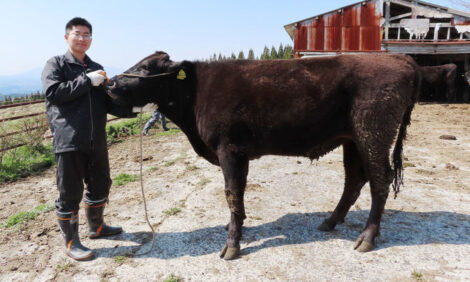



Another US Farm Bill Delay?
ANALYSIS - The US House of Representatives approved a three-year nutrition bill Thursday on a largely party-line 217-210 vote that is expected to cut about $40 billion over 10 years from the Supplemental Nutrition Assistance Program (SNAP). Many say this could delay approval of a US farm bill, writes Sarah Mikesell, TheCattleSite senior editor.House Agriculture Committee Chairman Frank Lucas, R-Okla., and other Republican lawmakers said the bill would make “common-sense” reforms to the SNAP program largely by encouraging work and ferreting out fraud and abuse. He said SNAP helps Americans who are struggling, but it's equally important to "ensure the program is working in the most effective and efficient way."
House Democrats strongly opposed the bill, saying it targets the America's most vulnerable - children and the elderly.
"What does this mean?” said House Minority Whip Steny Hoyer, D-Md in session as he pleaded for others to vote against the bill. “For 14 percent of our fellow citizens -- luckily 86 percent of us are doing pretty well, we can put a meal on the table, we can feed our children -- but 14 percent of our fellow citizens can't have confidence that they can do that.
"Has America fallen so low in its moral compass that we are not prepared to make sure that in the richest country on the face of the Earth they have food on their table? It means 210,000 children dropped from the school meals program. It means 170,000 veterans in need losing some or all of their food assistance. It will affect Americans of all ages and it will especially harm seniors, students, and individuals with disabilities."
After the House vote, Senator Debbie Stabenow, Chairwoman of the US Senate Ag Committee, said the effort has stalled House action on moving forward with finalizing the Farm Bill which supports 16 million American jobs.
"We have never before seen this kind of partisanship injected into a Farm Bill. Not only does this House bill represent a shameful attempt to kick millions of families in need off of food assistance, it's also a monumental waste of time. The bill will never pass the Senate, and will never be signed by the President.
"The good news is now that this vote is behind us, we are close to the finish line. If House Republican leaders drop the divisive issues, appoint conferees and work with us in a bipartisan way, we can finalize a farm bill that creates jobs, reforms agriculture policy, and reduces the deficit by tens of billions of dollars. It's time to get a comprehensive farm bill done to give farmers and ranchers the certainty they need to continue growing the economy."
US Agriculture Secretary Tom Vilsack said the vote was a "highly partisan step that does nothing to promote a bipartisan, comprehensive Farm Bill and stands no chance of becoming law. The Senate has passed a bipartisan Farm Bill two years running. Now it's time for House leadership to do their part by appointing conferees as soon as possible and completing the comprehensive bill that farmers, ranchers and rural Americans deserve.”
Commodity groups are also calling on the House to move quickly to conference on the Farm Bill.
The American Soybean Association called on the House to quickly name its conferees with the Senate and get to work reconciling the farm and food legislation in the two chambers. The House bill represents the nutrition portion of farm legislation split off earlier this summer in an attempt to pass individual, freestanding bills.
“This process has gone on for more than three years now, and we still have no long-term legislation in place. That is entirely too long. The current farm bill, which already been extended once by Congress, expires on September 30 and with it authority and funding for key market development, conservation, agricultural research, and price support programs," said ASA President Danny Murphy. "These are the real consequences of Congressional inaction, and we expect the House to appoint its conferees as soon as possible, and we call on both chambers to work across party lines to craft a bill that addresses the needs of both farmers and consumers.”
National Farmers Union (NFU) President Roger Johnson said, “Stripping nutrition programs from the farm bill was a mistake from the beginning. The level of cuts to the Supplemental Nutrition Assistance Program included in the legislation not only denies benefits to four million low-income Americans, but is also sure to make the conference process more difficult. It is time for the House to take meaningful action. House leadership must appoint conferees right away so that the stalled comprehensive 2013 Farm Bill can be finalized and enacted as soon as possible.”
To read more on changes to the Bill, click here.



